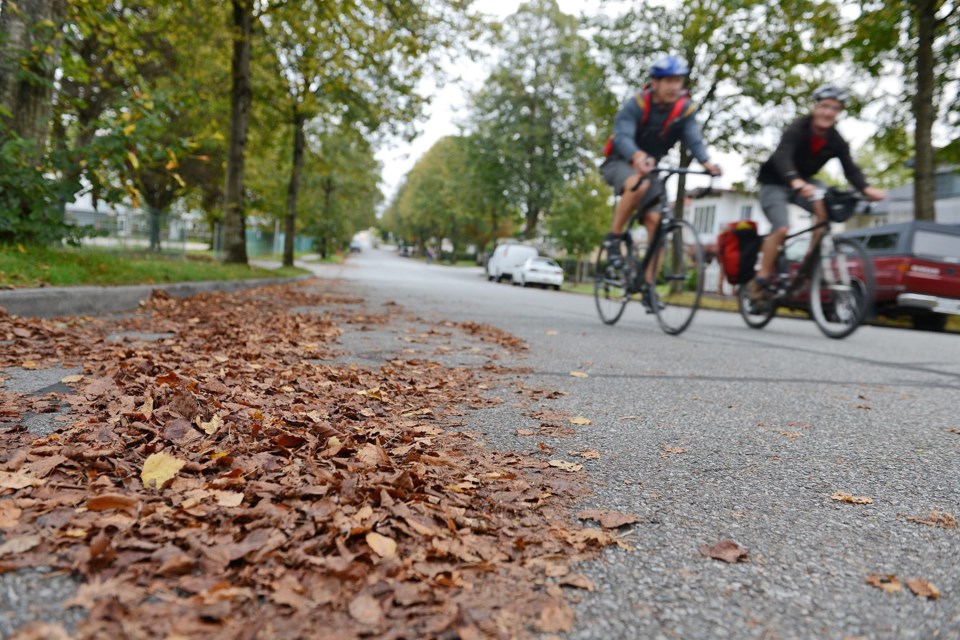I hope all of the riders out there are thoroughly enjoying fall bike to work week in spite of the typical fall weather forecast.
It would be a bit of an understatement to say the recent weather has not been the greatest. Last week heavy rains and a windstorm combined to down leaves, block drains and make riding along some streets feel more like navigating a series of small, swiftly flowing streams.
The great news, though, is that the wet weather doesn’t seem to have dampened the spirits of Vancouver’s cyclists. Each winter it seems like more people are donning waterproofs, attaching fenders and riding on through the rain and the cold. If you’ve been thinking about getting your bike out for a commute — or considering whether you want to keep riding through the winter — here are some of the reasons why getting on your bike is a good choice.
Cycling saves you money
Five days a week of bus trips at $2.75 each way adds up to a tidy $38.50 a week, or just over $2,000 a year. (A monthly one-zone adult pass is $91.) Parking alone in the average downtown parkade will set you back $10 per day or more, never mind the cost of insuring and maintaining a vehicle and keeping it topped up with gas at today’s pump prices. A solid second-hand bike, on the other hand, will set you back a couple hundred bucks, cost nothing for your day-to-day trips, and costs a fairly minimal amount to repair and maintenance (new tubes come in at under $5; a basic tune-up is usually around $30 to $60).
Cycling keeps you healthy
Even at a recreational pace, riding a bike burns 500 to 600 calories an hour. If your commute to work is half an hour, that translates to roughly 4,000 calories per week — enough to burn off a pound of fat. And unlike many forms of exercise, cycling has no impact and is easy on the joints. This makes it a great choice if you’re dealing with arthritic or painful knees, or are looking for a way to work out that won’t place undue stress on your body. Moderate exercise also helps keep immune cells active and ready to fight illness and lowers blood pressure.
Cycling makes you happy
Exercise releases endorphins, which react with receptors in the brain to do two things: reduce your perception of pain and trigger positive feelings (the “runner’s high”). As a result, cycling — along with other forms of exercise — can help reduce stress, ward off anxiety and depression, boost self-esteem, and improve sleep.
Cycling is good for the environment
If you’re curious as to how your bike ride to work translates to a reduction in greenhouse gas emissions, sign up to log your trips on the HUB website. As your kilometres add up, you’ll see exactly how many kilograms of emissions you’ve saved compared to covering the same distance in a car.
Kay Cahill is a cyclist and librarian who believes bikes are for life, not just for commuting. Reach her at kay@sidecut.ca.



